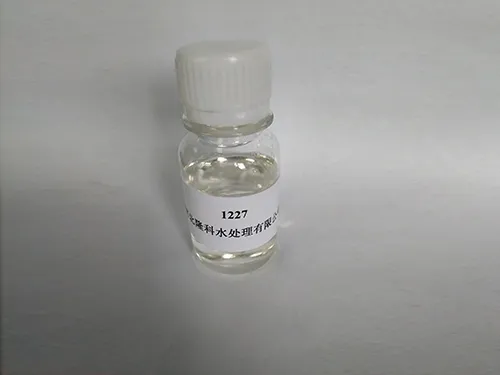Effective Scale Inhibitors for Enhanced Water Treatment Solutions and Management
The Importance of Scale Inhibitors in Water Treatment
Water is an essential resource for all living beings, and its quality plays a critical role in various industries, including agriculture, hospitality, manufacturing, and power generation. One of the significant challenges in maintaining water quality is the formation of scale, which can lead to operational inefficiencies, increased maintenance costs, and equipment failure. This is where scale inhibitors come into play, serving as a crucial component in water treatment processes.
Understanding Scale Formation
Scale refers to the buildup of mineral deposits, primarily calcium carbonate, magnesium carbonate, and other insoluble compounds in water systems. This buildup can occur in pipes, boilers, heat exchangers, and other equipment where water is heated or evaporated. Scale formation can restrict water flow, reduce heat transfer efficiency, and lead to overheating and subsequent damage to equipment. In industries such as power generation and manufacturing, scale can result in significant downtime, costly repairs, and reduced product quality.
The Role of Scale Inhibitors
Scale inhibitors are chemical additives used in water treatment to prevent or reduce the formation of scale deposits. They work by interfering with the crystallization process of scale-forming minerals, making it more difficult for these minerals to adhere to surfaces or form solid deposits. By incorporating scale inhibitors into water treatment systems, industries can effectively manage scale formation and its associated impacts.
Types of Scale Inhibitors
There are several types of scale inhibitors, each designed for specific applications and water chemistry conditions. The most common types include
1. Phosphate-Based Inhibitors These inhibitors work by precipitating scale-forming ions, thereby preventing them from forming solid deposits. They are widely used in cooling water systems and are effective in reducing calcium and magnesium scaling.
2. Polymeric Inhibitors These organic compounds are effective in dispersing scale particles and controlling their growth. Polymeric inhibitors are often used in industrial cooling systems and are effective against a range of scales, including calcium sulfate and barium sulfate.
3. Organic Acid Inhibitors This category includes compounds like citric acid and acetic acid, which can effectively dissolve existing scale deposits while also preventing new formations. They are particularly useful in cleaning applications and are biodegradable, making them environmentally friendly options.
scale inhibitor water treatment

Benefits of Using Scale Inhibitors
The use of scale inhibitors offers several advantages
1. Improved System Efficiency By preventing scale buildup, systems operate more efficiently, leading to lower energy consumption and operational costs.
2. Reduced Maintenance Requirements Scale inhibitors can significantly reduce the frequency and extent of maintenance required to clean and repair scaling equipment, contributing to lower overall maintenance costs.
3. Extended Equipment Lifespan By minimizing scale-related damage, the lifespan of equipment such as boilers and cooling towers can be prolonged, resulting in significant cost savings over time.
4. Enhanced Water Quality Scale inhibitors help maintain the quality of water used in various processes, ultimately improving the quality of the final products.
5. Environmental Benefits Many modern scale inhibitors are designed to be environmentally friendly, minimizing the ecological impact of water treatment processes.
Conclusion
Scale formation is a significant challenge in water treatment, impacting various industries and leading to increased operational costs and inefficiencies. Scale inhibitors play a vital role in managing this issue, providing effective solutions to prevent and reduce scale build-up. By choosing the appropriate scale inhibitor for specific applications, industries can enhance their operational efficiency, reduce maintenance needs, and ensure the longevity of their equipment. As the demand for high-quality water continues to rise, the importance of scale inhibitors in water treatment processes cannot be overstated. By investing in these effective treatments, industries not only protect their infrastructure but also contribute to more sustainable water management practices.
-
Water Treatment with Flocculant Water TreatmentNewsJun.12,2025
-
Polymaleic AnhydrideNewsJun.12,2025
-
Polyaspartic AcidNewsJun.12,2025
-
Enhance Industrial Processes with IsothiazolinonesNewsJun.12,2025
-
Enhance Industrial Processes with PBTCA SolutionsNewsJun.12,2025
-
Dodecyldimethylbenzylammonium Chloride SolutionsNewsJun.12,2025





